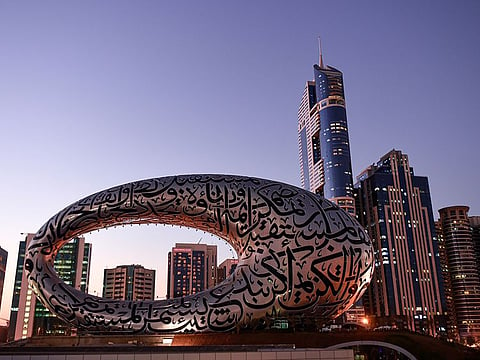Fiscal rectitude and flexibility mark UAE’s policies
Development plans are underpinned by goals embodied in the Vision 2021

The UAE’s economic policies have always been driven by all-round well-being of the nation while holding on to the principles of fiscal prudence and sustainable growth.
Key policy developments in the country last week, such as Dubai’s 20201 budget; Abu Dhabi’s decision to establish Supreme Council for Financial and Economic Affairs and Sharjah’s new budget law that allows flexibility of resource transfers among departments point to the leadership’s resolve to hold on to the values of financial discipline and pliability while sparing no efforts to pump prime economic growth.
Dubai’s budget for the fiscal year 2021, with total expenditures of Dh57.1 billion is a testament of the care the financial planners have taken to address the exceptional economic conditions of 2020 and the repercussions of the COVID-19 pandemic on the year ahead.
In a year that warranted unprecedented economic incentives for the private sector, keeping revenue deficit at check has been undoubtedly a huge challenge for financial planners.
Dubai government is expected to achieve public revenues of Dh52.31billion. While the spending plan for 2021 addresses economic stability and financial sustainability in the medium to long term, it also seeks to augment new streams of revenues, raise the spending efficiency and increase the level of private sector engagement.
The most commendable among the policy efforts is the balanced approach to fiscal planning by the government to decrease operational spending while strengthening investment spending.
While a 4 per cent GDP growth is targeted for 2021, the revenue challenges have not deterred the government from pursuing an expansionary fiscal policy that supports the private sector while keeping its commitment to social and infrastructure spending that together accounts for 72 per cent of the total budget outlay.
The big picture
A careful look at all recent policy developments in the UAE at the Federal or at individual emirates point to a unified goal of prudent financial planning.
Abu Dhabi’s move to establish the Supreme Council for Financial and Economic Affairs to oversee all matters related to the emirate’s financial, investment, economic, petroleum and natural resources and Sharjah’s new law on efficient management of public resources are part of this big picture.
The UAE has been working on a consolidated Medium-Term Fiscal Framework and that is set to give a clear direction for fiscal policy for the country as a whole and would better align resource allocation with local and national development plans underpinned by goals embodied in the Vision 2021.



